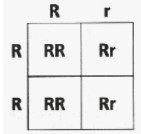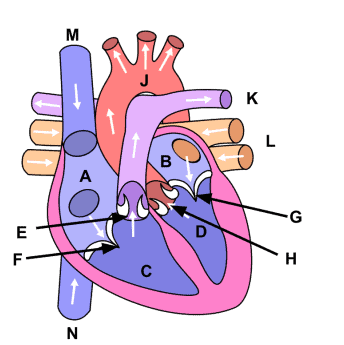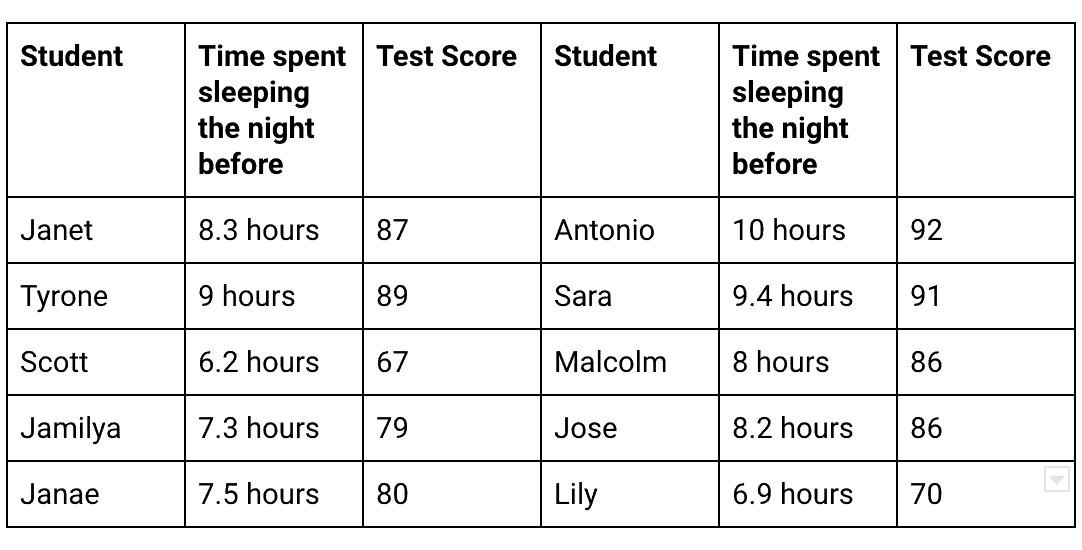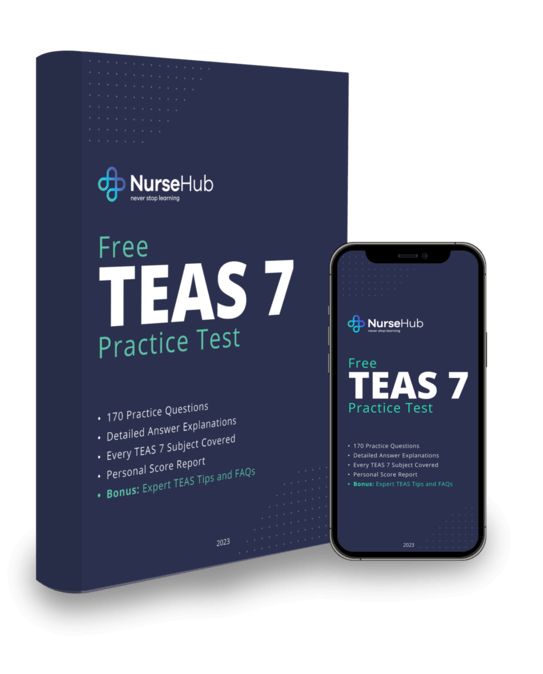ATI TEAS 7 Science Course
-
Introduction
Free ATI TEAS Science Diagnostic Test1 Quiz -
Human Anatomy and PhysiologyGeneral Anatomy and Physiology3 Lessons|1 Quiz
-
Cardiovascular System9 Lessons|1 Quiz
-
Respiratory System4 Lessons|1 Quiz
-
Gastrointestinal System2 Lessons|1 Quiz
-
Neuromuscular System10 Lessons|1 Quiz
-
Reproductive System2 Lessons|1 Quiz
-
Integumentary System2 Lessons|1 Quiz
-
Endocrine System3 Lessons|1 Quiz
-
Genitourinary System4 Lessons|1 Quiz
-
Immune System4 Lessons|1 Quiz
-
Skeletal System6 Lessons|1 Quiz
-
Life and Physical SciencesApply Concepts of Mendel’s Laws of Inheritance1 Quiz
-
Describe the Relationship Between Genetic Material and the Structure of Proteins3 Lessons|2 Quizzes
-
Describe Cell Structure, Function, and Organization9 Lessons
-
Describe the Structure and Function of the Basic Macromolecules in a Biological System1 Lesson|1 Quiz
-
Describe the Role of Microorganisms in Disease2 Lessons
-
ChemistryExplain Physical Properties and Changes of Matter11 Lessons|1 Quiz
-
Recognize Basic Atomic Structure10 Lessons|1 Quiz
-
Describe Chemical Reactions1 Quiz
-
Understand Properties of Solutions
-
Scientific ReasoningUse Basic Scientific Measurements and Measurement Tools1 Quiz
-
Apply Logic and Evidence to a Scientific Explanation1 Quiz
-
Predict Relationships Among Events, Objects, and Processes1 Quiz
-
Apply the Scientific Method to Interpret a Scientific Investigation1 Quiz
-
Timed Practice Test SimulationsATI TEAS Science Practice Tests5 Quizzes
This a free ATI TEAS 7 Science Diagnostic Practice Test. The purpose is to simulate the exam day experience.
- Score Report: At the end of the test, you will receive a comprehensive score report.
- Diagnose & Improve: Use this test for targeted skill assessment. It helps identify the specific topics or skills that you need to focus on the most.
- Start Learning: Sign Up to NurseHub to start improving your score today.
📕 Click here to download this practice test as a PDF.
Quiz Summary
0 of 50 Questions completed
Questions:
Information
You have already completed the quiz before. Hence you can not start it again.
Quiz is loading…
You must sign in or sign up to start the quiz.
You must first complete the following:
Results
Results
0 of 50 Questions answered correctly
Your time:
Time has elapsed
You have reached 0 of 0 point(s), (0)
Earned Point(s): 0 of 0, (0)
0 Essay(s) Pending (Possible Point(s): 0)
Categories
- Apply Concepts of Mendel's Laws of Inheritance 0%
- Apply Logic and Evidence to a Scientific Explanation 0%
- Apply the Scientific Method to Interpret Scientific Investigation 0%
- Cardiovascular System 0%
- Describe Cell Structure, Function, and Organization 0%
- Describe Chemical Reactions 0%
- Describe the Relationship Between Genetic Material and Protein Structure 0%
- Describe the Role of Microorganisms in Disease 0%
- Describe the Structure and Function of the Basic Macromolcules in a Biological System 0%
- Endocrine System 0%
- Explain the Physical Properties and Changes in Matter 0%
- Gastrointestinal System 0%
- General Anatomy and Physiology 0%
- Genitourinary System 0%
- Immune System 0%
- Integumentary System 0%
- Neuromuscular System 0%
- Predict Relationships Among Events, Objects, and Processes 0%
- Recognize Basic Atomic Structure 0%
- Reproductive System 0%
- Respiratory System 0%
- Skeletal System 0%
- Understand Properties of Solutions 0%
- Use Basic Scientific Measurements and Measurement Tools 0%
-
Congrats on completing the TEAS 7 Science Diagnostic Test! Now you will start working through the lessons and quizzes in this course to prepare to ace the Science section. You are going to crush this test and we are going to be with you every step of the way.
 Use the score report below to formulate your study plan of attack.
Use the score report below to formulate your study plan of attack. Trust us. You’ve got this!
Trust us. You’ve got this! -
Congratulations! You have completed the diagnostic test and are well on your way to beating the ATI TEAS!
 Use the score report below to formulate your study plan of attack. The quizzes that follow are organized by topic so you can focus on improving in specific areas of need.
Use the score report below to formulate your study plan of attack. The quizzes that follow are organized by topic so you can focus on improving in specific areas of need. Trust us. You’ve got this!
Trust us. You’ve got this!
- 1
- 2
- 3
- 4
- 5
- 6
- 7
- 8
- 9
- 10
- 11
- 12
- 13
- 14
- 15
- 16
- 17
- 18
- 19
- 20
- 21
- 22
- 23
- 24
- 25
- 26
- 27
- 28
- 29
- 30
- 31
- 32
- 33
- 34
- 35
- 36
- 37
- 38
- 39
- 40
- 41
- 42
- 43
- 44
- 45
- 46
- 47
- 48
- 49
- 50
- Current
- Review / Skip
- Answered
- Correct
- Incorrect
-
Question 1 of 50
1. Question
Which of the following correctly describes the law of segregation?
CorrectIncorrect -
Question 2 of 50
2. Question
The genotypes of the parents in the Punnett square below can be described as __________.
 CorrectIncorrect
CorrectIncorrect -
Question 3 of 50
3. Question
Which of these is a function of a ribosome?
CorrectIncorrect -
Question 4 of 50
4. Question
The number of protons is the same as?
CorrectIncorrect -
Question 5 of 50
5. Question
Which of the following statements is true about protons?
CorrectIncorrect -
Question 6 of 50
6. Question
A lipid or fat molecule can be broken down into fatty acids and __________.
Type your response in the box below.
CorrectIncorrect -
-
Question 7 of 50
7. Question
Which of the following prefixes would likely be the most appropriate for measuring the weight of a 2,500 g kitten?
CorrectIncorrect -
Question 8 of 50
8. Question
Which of these bonds would we see between nitrogenous bases?
CorrectIncorrect -
Question 9 of 50
9. Question
Which of the following is the most accurate description of the link between chromosomes and DNA?
CorrectIncorrect -
Question 10 of 50
10. Question
Which of the following statements about diffusion is true?
Please select all that apply.
CorrectIncorrect -
Question 11 of 50
11. Question
Which of the following hormones is not increased in response to dehydration?
CorrectIncorrect -
Question 12 of 50
12. Question
In which segment of the nephron is glucose reabsorbed?
CorrectIncorrect -
Question 13 of 50
13. Question
What is the correct sequence in which inhaled air passes through the respiratory tract?
Drag and drop tiles to reorder the sequence.
-
Pharynx
-
Bronchi
-
Nasal cavity
-
Larynx
-
Trachea
-
Bronchioles
View Answers:
CorrectIncorrect -
-
Question 14 of 50
14. Question
Which of the following is a hypothesis?
CorrectIncorrect -
Question 15 of 50
15. Question
Which of the following descriptions is correct?
CorrectIncorrect -
Question 16 of 50
16. Question
Using the provided image, choose the anatomical structure designated by letter B.
 CorrectIncorrect
CorrectIncorrect -
Question 17 of 50
17. Question
Balance the following chemical equation:
CH4 + Cl2 → CCl4 + HCl
CorrectIncorrect -
Question 18 of 50
18. Question
The _________________ is the blood vessel that carries oxygen depleted blood away from the heart.
Type the correct response in the box below.
CorrectIncorrect -
-
Question 19 of 50
19. Question
Which of the following statements is true about viruses?
CorrectIncorrect -
Question 20 of 50
20. Question
Which of the following structures is correctly paired with its function?
CorrectIncorrect -
Question 21 of 50
21. Question
The respiratory system is composed of organs that facilitate gas exchange between the blood and the external environment. Which of the following describes the group of organs that function during gas exchange?
CorrectIncorrect -
Question 22 of 50
22. Question
Which of the following is the process by which gametes divide and produce half the number of chromosomes found in a somatic cell?
CorrectIncorrect -
Question 23 of 50
23. Question
Which of the following correctly describes the difference between compact bone and spongy bone?
CorrectIncorrect -
Question 24 of 50
24. Question
Which of the following correctly describes anatomical position?
CorrectIncorrect -
Question 25 of 50
25. Question
Which of the following is a substance that the kidneys remove from the blood during filtration?
CorrectIncorrect -
Question 26 of 50
26. Question
Which of the following does not describe the dermis?
CorrectIncorrect -
Question 27 of 50
27. Question
T-lymphocytes mature and become functional in which of the following organs?
CorrectIncorrect -
Question 28 of 50
28. Question
Which of the following is not true about thermoregulation?
CorrectIncorrect -
Question 29 of 50
29. Question
Which of the following is correct about muscle contraction?
Please select all that apply.
CorrectIncorrect -
Question 30 of 50
30. Question
Which of the following is not true about reproductive hormones?
CorrectIncorrect -
Question 31 of 50
31. Question
Which of the following comparisons between arteries and veins is true?
CorrectIncorrect -
Question 32 of 50
32. Question
Melatonin is the hormone that regulates sleep-and-wake rhythm. Which of the following endocrine glands is responsible for producing melatonin?
CorrectIncorrect -
Question 33 of 50
33. Question
Which of the following substances would not dissolve in water?
CorrectIncorrect -
Question 34 of 50
34. Question
Gas exchange between the blood and alveoli would be enhanced by ______________, but impeded by __________________.
CorrectIncorrect -
Question 35 of 50
35. Question
Which of the following is true of insulin and glucagon?
Please select all that apply.
CorrectIncorrect -
Question 36 of 50
36. Question
The majority of nutrient absorption occurs in the _________________.
Type your response in the box below.
CorrectIncorrect -
-
Question 37 of 50
37. Question
Match the following structures to their function.
Drag and drop tiles in the appropriate box.
Sort elements
- External sex organ of a male
- Sperm channel from the epididymis to the penis
- Copulatory organ of the female
- Implantation site of a zygote
-
Penis
-
Vas deferens
-
Vagina
-
Uterus
CorrectIncorrect -
Question 38 of 50
38. Question
Which of the following causes bone matrix resorption during bone growth and remodeling?
CorrectIncorrect -
Question 39 of 50
39. Question
Which of the following antigen-specific immune cells produce cytokines, which facilitate various immune reactions?
CorrectIncorrect -
Question 40 of 50
40. Question
Which of the following is a function of the epidermis?
Please select all that apply.
CorrectIncorrect -
Question 41 of 50
41. Question
Movement of molecules in a substance depends on _______ energy.
CorrectIncorrect -
Question 42 of 50
42. Question
A scientist collected the following set of data to examine the effects of exercise on patients’ heart rates.

Patients were tasked with running 1 mile everyday for three days in the presence of the scientists. They were required to run the entire mile and were not allowed to walk. At the end of each mile run, the scientists measured the heart rates of the patients. Which of the following conclusions can be drawn from this data?
CorrectIncorrect -
Question 43 of 50
43. Question
Which of the following statements is true about hydrogen bonds?
CorrectIncorrect -
Question 44 of 50
44. Question
Which of the following is the most plausible sequence of events?
CorrectIncorrect -
Question 45 of 50
45. Question
Which would be the approximate mass of a car?
CorrectIncorrect -
Question 46 of 50
46. Question
The same single-replacement reaction is run in two different beakers. The beakers are labeled as Beaker A and B and are heated to 75oC and 100oC, respectively. If the reactions are run for 15 minutes each, which of the following results would you expect to observe?
CorrectIncorrect -
Question 47 of 50
47. Question
Enzymes are biological catalysts that ___________.
CorrectIncorrect -
Question 48 of 50
48. Question
Why are control groups used in experiments?
CorrectIncorrect -
Question 49 of 50
49. Question
Review the data in this table, and then choose the statement that draws the best conclusion?
 CorrectIncorrect
CorrectIncorrect -
Question 50 of 50
50. Question
Dissolved oxygen (DO) is an important indicator of water quality, and oxygen levels that are too high or too low can harm aquatic ecosystems. A biologist noticed that fish were dying in a local lake and was concerned that the DO levels were too low to support aquatic life due to extremely high temperatures that summer. To measure the DO levels, she brought back several lake water samples to her laboratory to measure the DO concentration as a function of temperature. To do this, she heated several samples of lake water to various temperatures and then measured the DO concentration in each sample. Some samples were kept at the outdoors temperature.
Which of the following is the independent variable?
CorrectIncorrect


